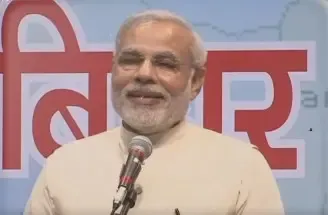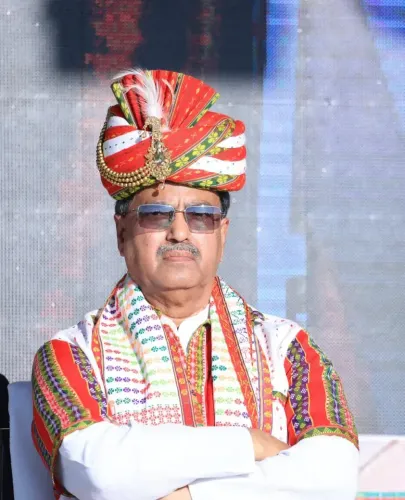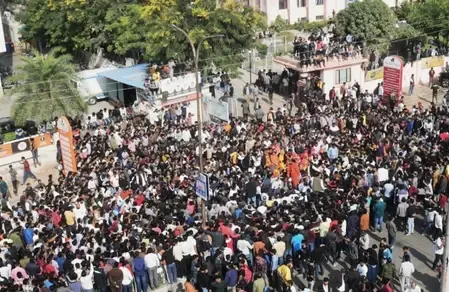Why Did CPI-M Celebrate the Krishnagiri Caste Killing Verdict?

Synopsis
Key Takeaways
- CPI-M welcomes a significant ruling against caste violence.
- The Krishnagiri court imposed life sentences for the accused.
- The case highlights the ongoing struggle against caste supremacy.
- Support for inter-caste couples is essential for societal progress.
- Government job offers can aid victims in their rehabilitation.
Chennai, Nov 15 (NationPress) The CPI-M Tamil Nadu state Secretary P. Shanmugam expressed his approval on Saturday regarding the Krishnagiri court's ruling, which imposed three life sentences and an extra 10-year prison term for the individuals involved in the Subash caste killing case.
Characterizing the decision from the Krishnagiri Principal District Sessions Court as a “crucial advancement” in the battle against caste-related violence in Tamil Nadu, he stated that this verdict conveys a clear and forceful warning to those who seek to impose caste dominance through violence.
This unfortunate incident arose from the union of Anusuya, a woman from a Scheduled Caste community in Kollapuram village of Ariyalur district, and Subash, aged 28, who was from a Backward Class community in Arunapathi near Uthangarai in Krishnagiri.
The couple wed on March 27, 2023, despite facing significant opposition.
On April 14, 2023, after a call from Subash’s grandmother, Kannammal, the couple visited her residence.
Tragically, what transpired hours later was a horrifying act of “honour-based” violence.
In the early hours of April 15, Subash’s father, Dhandapani, allegedly attacked the couple and Kannammal with a sickle. Subash and his grandmother lost their lives instantly, while Anusuya suffered serious injuries, requiring extensive treatment at the Salem Medical College Hospital, where she eventually recovered.
The Uthangarai police initiated the case under the SC/ST (Prevention of Atrocities) Act.
Following nearly two and a half years of hearings, Judge V. R. Latha of the Krishnagiri Principal District Sessions Court delivered the verdict on November 14, sentencing Dhandapani to three life sentences along with a 10-year term, and mandating a compensation of Rs 2.5 lakh to Anusuya.
Shanmugam welcomed this ruling, highlighting that caste-related murders continue to tarnish Tamil Nadu’s social fabric, and this judgment reaffirms the state’s dedication to safeguarding inter-caste couples and survivors of honour crimes.
He acknowledged the contributions of the Tamil Nadu Untouchability Eradication Front, which supported the legal efforts, and expressed gratitude towards the CPI-M district units in Krishnagiri and Salem for their unwavering support of Anusuya throughout her trials. He also praised the special public prosecutor Ramesh, the volunteer lawyers, and K.C. Karl Marx, a High Court advocate, for their legal assistance.
Commending Anusuya for her bravery and tenacity, Shanmugam urged the state government to offer her a government job as part of a comprehensive rehabilitation program, ensuring she can restore her life with dignity.









